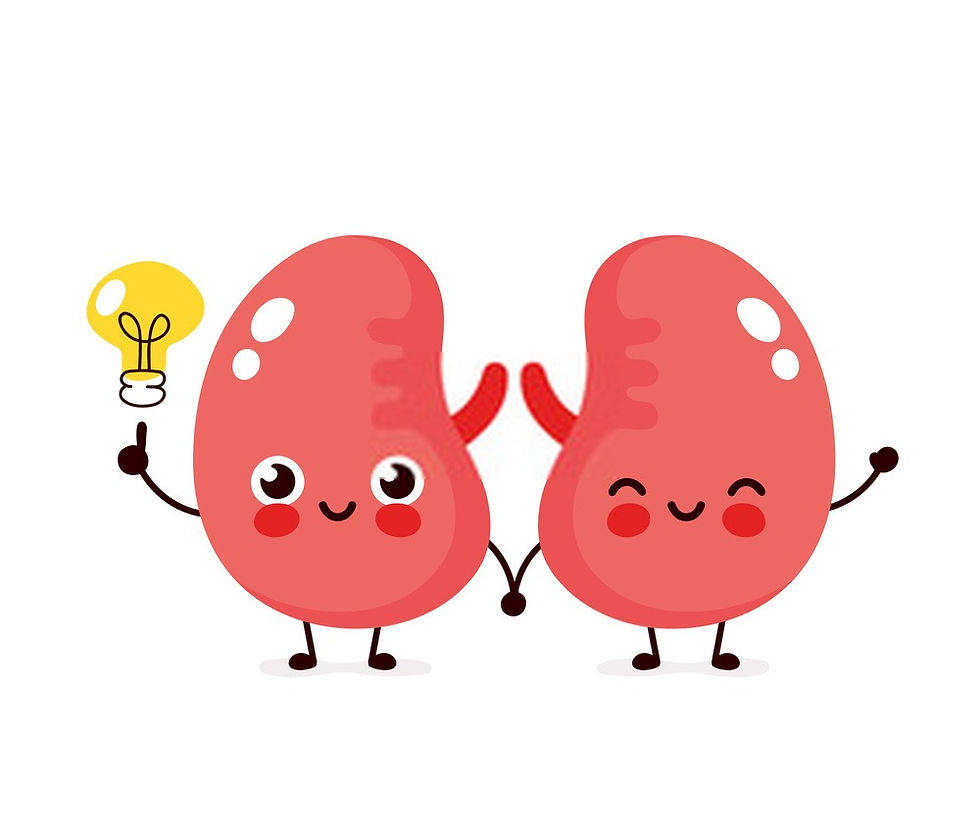10 Best Foods To Avoid Kidney Diseases By Which 10% Of Global Population Is Already Affected
- Kavisht

- Feb 28, 2020
- 3 min read
Updated: Jan 5, 2023

Kidney diseases are common problems affecting around 10% of the global population. The kidneys are small bean-shaped organs responsible for carrying the most essential fictions in our bodies. It helps in filtering waste products, releasing hormones for regulating blood pressure and balancing fluids in the body.
Hypertension and diabetes are the most common risk factors for the onset of kidney diseases. Obesity, genetics, smoking, age, and gender can also increase the risk. Uncontrolled blood sugar and hypertension cause damage to the blood vessels in the kidneys, reducing their abilities to function optimally.
Here is the list of top 10 foods that help in keeping your kidney in shape.
Cauliflower
A vegetable is rich in vital nutrients such as vitamins C, K, and B or folate. Besides, it is rich in fiber that helps indigestion. Cauliflowers are rich in indoles, inflammatory compounds. They can be eaten raw, roasted and smashed in place of potatoes. One cup of cooked cauliflower contains 19 mg sodium, 176 mg potassium, and 40 mg phosphorus.
Garlic
Because kidney problems prohibit the intake of sodium, most of us are worried about losing the enjoyment of flavorful food. However, garlic is a wonderful alternative to common salt. It also offers its own nutritional benefits. Garlic is rich in vitamin C, B6, manganese, and certain sulfur compounds, which are anti-inflammatory compounds.
Also Read:10 Best Researched Foods That Can Prevent You From 70% Of Heart Diseases, So Make The Right Choice!
Blueberries
Blueberries are one of the best fruits that keep your whole body healthy. They are rich in antioxidants called anthocyanins. These antioxidants help in reducing the risk of diabetes, heart diseases, cognitive decline, and certain types of cancers. They also work fantastic for kidney patients, as they are low in sodium, potassium, and phosphorus.
Sea Bass
Sea bass is recommended for people with kidney diseases because it is a high-quality protein. It contains healthy omega-3 fatty acids along with lower phosphorus levels compared to other seafood. Sea bass is essential for consumption in moderation, but a diet rich in omega-3 also helps in moderating kidney diseases.
Olive Oil
Olive oil is not only rich in healthy fats; it is completely free of phosphorus. It is especially useful for people with kidney disease because they tend to maintain a healthy weight. The fat in olive oil is a highly mono-saturated version called oleic acid that helps in reducing inflammation. It is excellent for cooking since it can withstand high temperatures and great for salad dressings.
Egg Whites
Egg yolks are highly nutritious and contain high levels of phosphorus. People should consume only egg whites with kidney diseases. Why? Egg whites are rich in protein and low in phosphorus are hence are recommended to patients with kid diseases.
Red Grapes
Red grapes are high in vitamin C and contain antioxidants, flavonoids. Flavonoids help in reducing inflammation in the body. Resveratrol, a particular type of flavonoids, is touted for its ability to benefit the heart, regulate blood sugar, hold off cognitive decline, and protect the skin from sun exposure and aging.
Bell Peppers
Bell peppers contain impressive amounts of nutrients and are low in potassium. These brightly colored peppers are loaded with powerful antioxidants, vitamin C. They are loaded with vitamin A, an essential nutrient for immune function, which is often compromised in people suffering from kidney diseases.
Arugula
Conventional nutrition information suggests many dark leafy greens like spinach and kale. These are extremely healthy foods. They are rich in potassium and hence not recommended for people on a renal diet.
Arugula is a great alternative. It is both low in potassium and rich in vitamin K, calcium, and manganese. It is also rich in nitrates that are known for lower blood pressure, which is another consideration with kidney diseases.
Buckwheat
Whole grains are a vital part of a healthy diet, but most of them are high in phosphorus. However, buckwheat is an excellent alternative to most of the whole grains. It is rich in magnesium, fiber, iron and B vitamins. Besides, it is absolutely gluten-free and safe for people with gluten intolerance.
Up Next: 10 Eats To Improve Liver Function & Prevent Your Liver From Type 2 Diabetes and Metabolic Disorder
Take a step for yourself, SIGN UP to get such articles directly into your inbox.




























